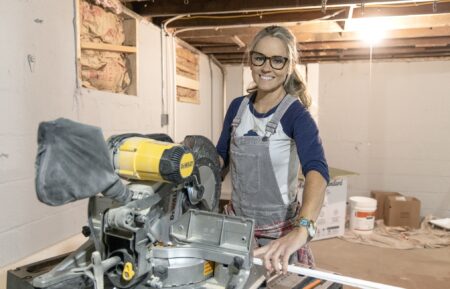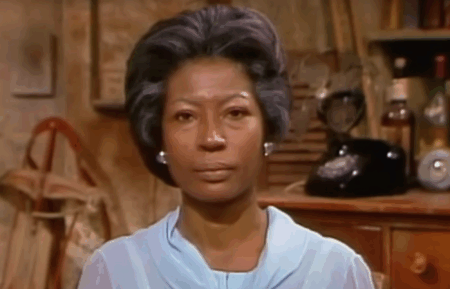‘Girl in Room 13’: Elisabeth Röhm on Directing Anne Heche’s Last Movie — ‘She Was a True Advocate’
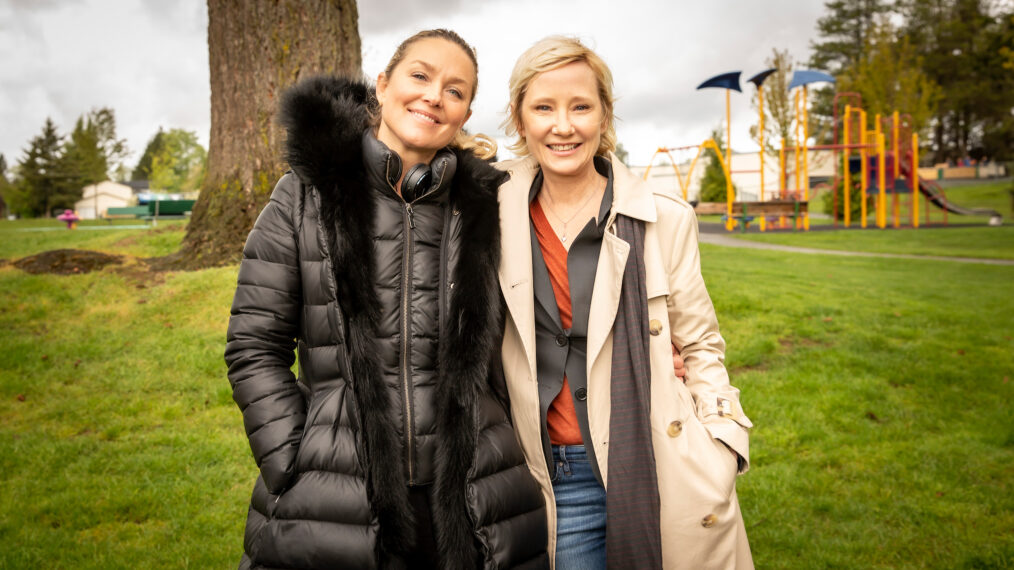
Q&A
One of Anne Heche‘s final performances is in Lifetime‘s Girl in Room 13. Premiering September 17, the TV movie is inspired by actual events, exploring the dark underworld of the $150-billion-dollar human trafficking industry in the United States.
Heche stars as Janie and Larissa Dias stars as her daughter, Grace, a recovering addicted who developed an opioid addition after her doctor prescribed them for a sports injury at a very young age. Grace is trying to turn her life around after three stints in rehab. With the help and support of her mother, she gets a job at her family’s restaurant. But her past continues to haunt her when her friend coerces her into meeting her former love interest and drug dealer, Richie (Max Montesi). When she learns it was all an elaborate plot to sell her into sex trafficking, Grace fights for her life to break free of the motel she’s imprisoned in.
Janie refuses to believe Grace relapsed and is the only once convinced her daughter is in danger. She begins a high-stakes hunt to find Grace. Stopping at nothing, Janie discovers the dark world of human trafficking and the shocking statistics about its widespread victims and its unexpected accomplices.
Heche died of a severe brain injury sustained in a car crash in Los Angeles, California, on Friday, August 5. The Emmy-winning actor was legally pronounced dead on August 12 and was taken off of life support on August 15.
Here, director Elisabeth Röhm (director of Girl in the Basement and Switched Before Birth) shares what it was like on set with Heche, why this story needed to be told, and more.
This is a rather heavy story from start to finish. Why did you feel it was important to tell?
Elisabeth Röhm: It never ceases to amaze me the statistics around human trafficking. Anne had even said this many times, as did everybody in the cast, including Lifetime, that this story has to be told sufficiently. It’s a $150 billion industry, and there are survivors today going through their own journey.
Telling not only a comprehensive story, but also creating a behind the headlines, sort of connective tissue to this non-profit, Polaris, to create more awareness and put a spotlight on the subject of human trafficking was really the drumbeat of the set every day. And it really was specifically for Anne, because she was not a survivor of human trafficking, but of abuse. It was deeply personal to all of us.
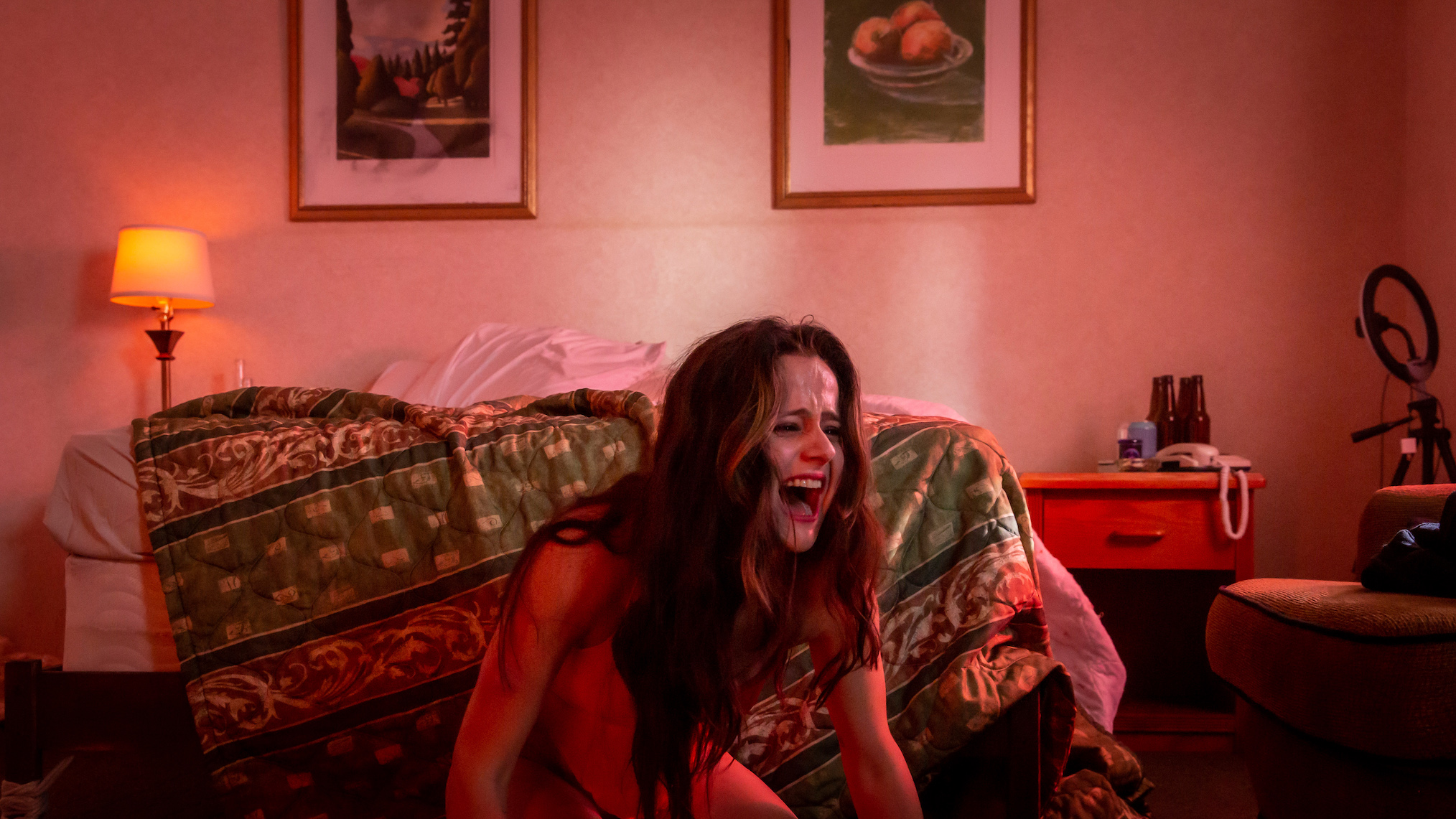
Lifetime
Can you expand more on the partnership with Polaris with this project?
So we did a PSA, and we are going to continue the narrative. We have an event in New York with Veronica Beer to shop and sip, and they’re going to make a donation to Polaris. We’re going continue the conversation with Polaris in the months to come on the topic of human trafficking, because they continue to connect victims and survivors, collect data, and really help create understanding and continue the fight against human trafficking in a very effective way. We’re behind them 100 percent.
Even with Girl in the Basement and Switched Before Birth, my two other movies with them, it’s not just about the movie. It’s about the movement. It’s about the continued support to the issue. And as you probably are aware of, they have a platform called Stop Violence Against Women that they continue to really focus on and tell really difficult stories, but with very specific purposes behind it, not just the film itself.
In addition to the sex trafficking narrative in this story, there’s a huge stigma around drug addiction. Grace is trying to turn her life around while in recovery from her opioid addiction, but the second she goes missing, so many people in her life just assume she relapsed again. What were you aiming to highlight with that?
I think the real point we wanted to get across was that we could all be victims, especially vulnerable youth, both female and male. Grace’s situation — very insecure and having feelings of low self-worth, the love-bombing from Richie — it really gets to her. And so we just want to continue to draw attention. We all could, especially young people, fall prey to being victimized in a myriad of ways. But specifically when it comes to human trafficking, it’s usually somebody you know. They’ve set you up for it, and you trusting the wrong person becomes a part of the narrative of Girl in Room 13.
Something we hope that we can draw attention to is that it seems so unlikely that somebody you love or know, someone who is love-bombing you or into you could ever coordinate to sell you on the open market for human trafficking. But it happens a lot and consistently. It’s not just about her drug addiction — it’s about her vulnerability. She partied with him and really fell victim to his love-bombing. So it’s a big part of the story.
Grace is failed by those who could help her at every turn, a lot of times by women. It’s really heartbreaking to watch. Why was that important to include?
I do know that legal precedent has been put in place at any location where there are people being held for criminal activity, they will be held responsible for those crimes. I couldn’t be specific about the law and how the law changed, but it did change around certain events. And this is not a true story, it’s inspired-by, so there’s an amalgamation of stories that we drew upon.
But yes, I think that it is true to say that there has been legal precedent put in place that if there are people being held at a motel for human trafficking, the motel will be held responsible if they turn a blind eye. [In Girl in Room 13, the motel owner] is going to benefit financially, so she turns a blind eye and doesn’t help. And those individuals will be held responsible.
Tragically, this is one of Anne Heche’s final performances. What was it like working with her on this? Are there any fond stories you’d like to share?
She had worked with Lifetime before, so she was really excited and pumped to be a part of their Stop Violence Against Women campaign. She wanted to get underneath [the story] in a really deep, personal way and bring a performance that she wanted an Emmy for on behalf of Lifetime and on behalf of stopping violence against women. She was in it with every ounce of her soul. She was really committed. Every single day, she would come to set and she would say, “We will not stand for abuse. And we stand with Lifetime in that commitment to stopping violence against women.”
She was a true advocate. She really, genuinely wasn’t just there to do a movie or collect a paycheck. She really felt committed to the mission and drawing the spotlight to difficult topics like human trafficking.
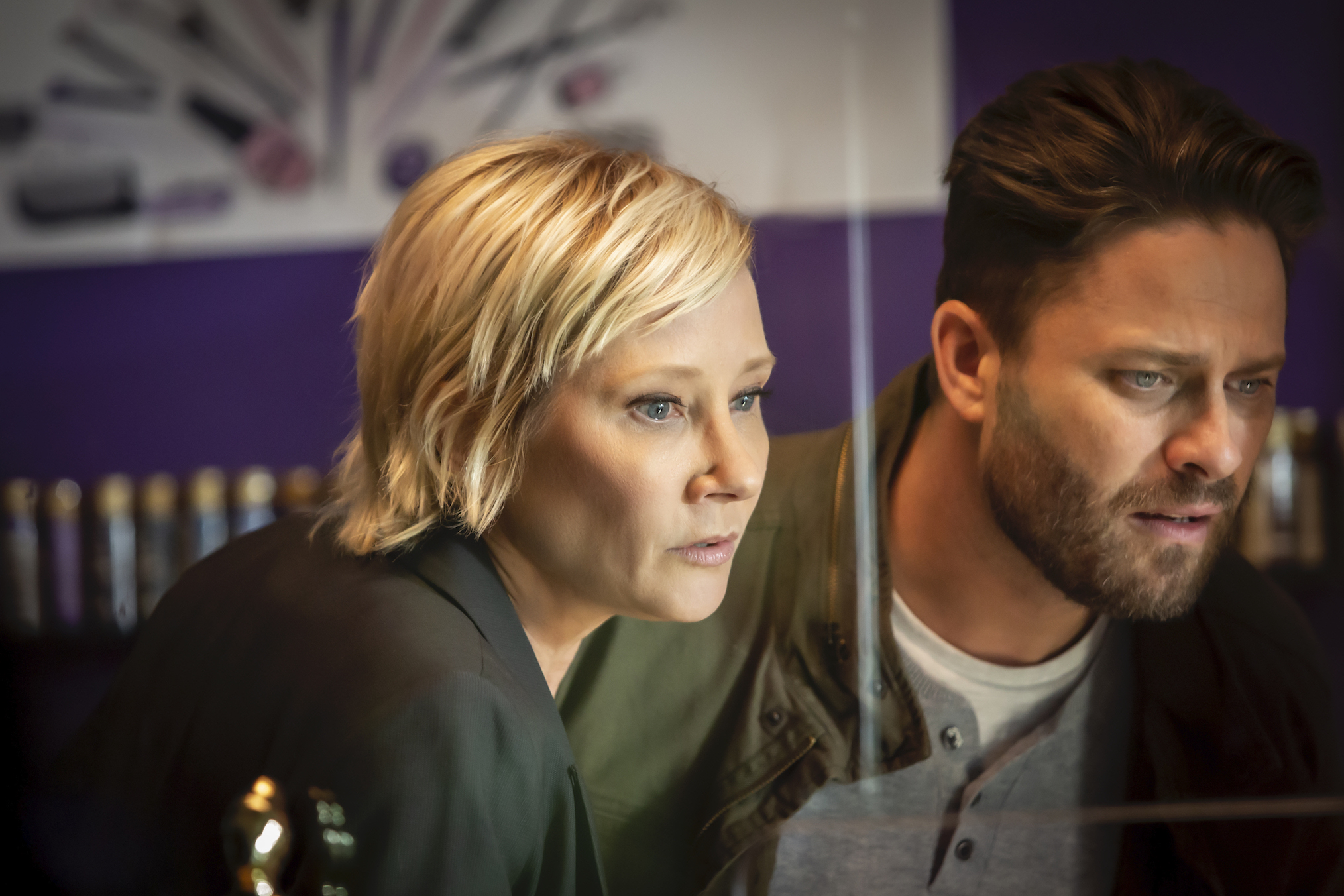
Lifetime
What about her performance stands out most to you? And what about Larissa’s?
I just really genuinely wanted to encourage them to go all in and know that I would protect them and they wouldn’t give over the top performances. They would be grounded, just raw and riveting. This mother deeply knows that her daughter is unsafe, and no matter what she’s going to find her. And as the clock is ticking, she is just torn apart, and Anne really, really went there.
The same thing with Larissa. As opposed to giving a performance of a girl in these circumstances, she went all the way to a place where it was as if she was in those circumstances. I would just really want to say thank you to both actresses — and Max Montesi for playing the villain — to really trust me to go to a very dark place to portray just how evil this act is, what it means to a victim, and what it means to a parent or a loved one who is in the pursuit of finding their loved one. I’m really proud of each of them. They’re so brave as actors.
How did you keep the mood light on set while filming these difficult scenes?
Well, I have to say when we were at the motel, there weren’t a lot of laughs. [Laughs] It wasn’t that light. It was pretty, pretty tense. And Lifetime movies move very quickly. We shoot them in about 15 days.
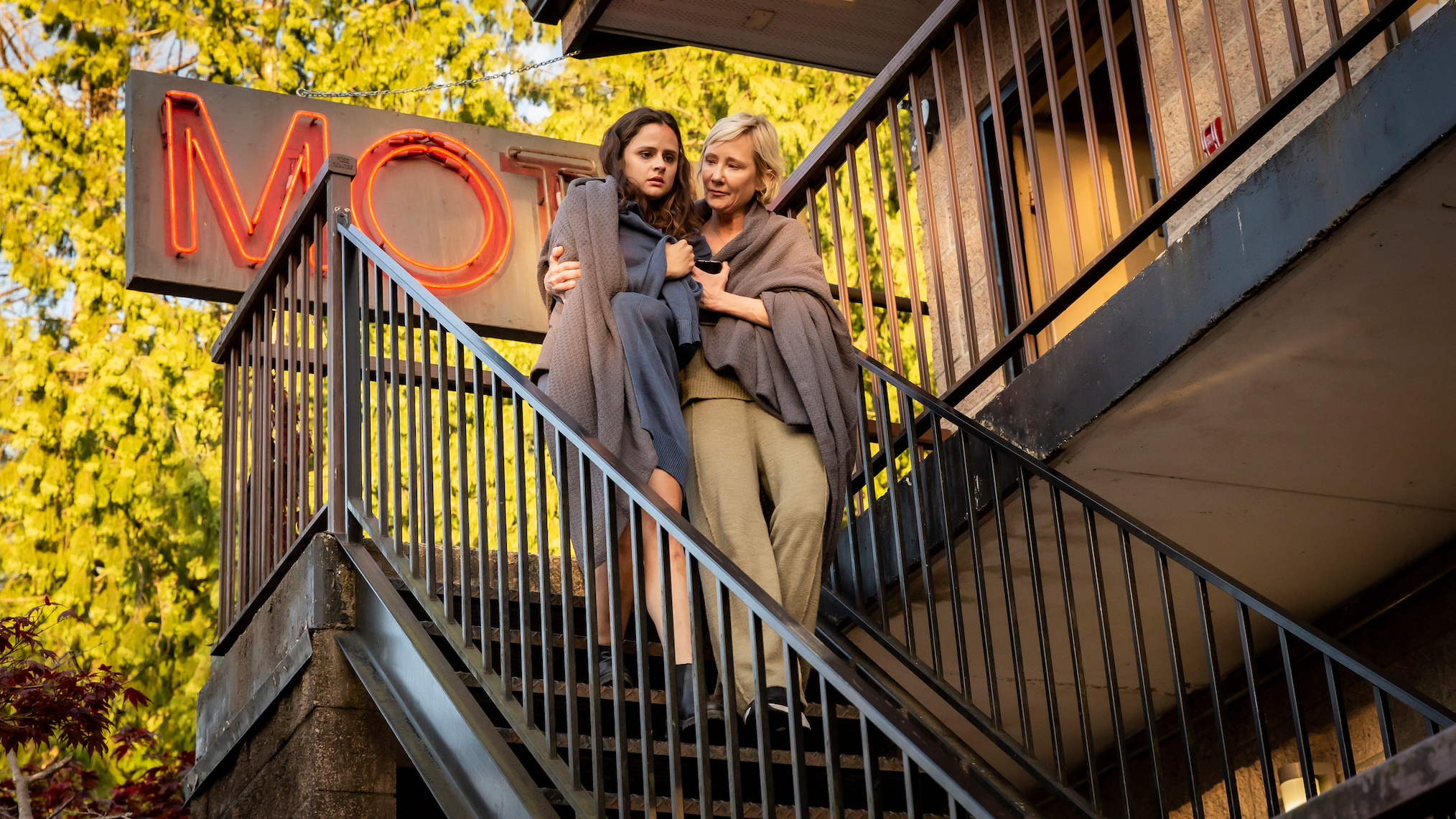
Lifetime
I knew Larissa Diaz from a previous Lifetime movie in which we both starred called Family Pictures. I met Justina Machado through that movie as well and have done other films with her. She happened to know Anne, and she couldn’t have spoken more highly about her, and so I was really excited to work with Anne. We had a connective tissue, having a few other people in common, and so we were really able to be great colleagues and allies for each other.
They were all committed. We tried to find our light moments when we could, but it was pretty heavy and intense.
What’s next for you?
I’m going to be directing another movie for Lifetime soon, and I’m going to be directing my first episode of network television. I can’t yet announce what that is, but I’m excited about that. I’m also doing an Amazon movie as an actor in the next coming months.
Girl in Room 13, TV Movie Premiere, Saturday, September 17, 8/7c, Lifetime
From TV Guide Magazine
How 'Countdown' Recruited Jensen Ackles to Go Full 'Die Hard'
Countdown boss Derek Haas talks creating the character around Ackles, and the cast teases the “Avengers”-like team of the crime thriller. Read the story now on TV Insider.





